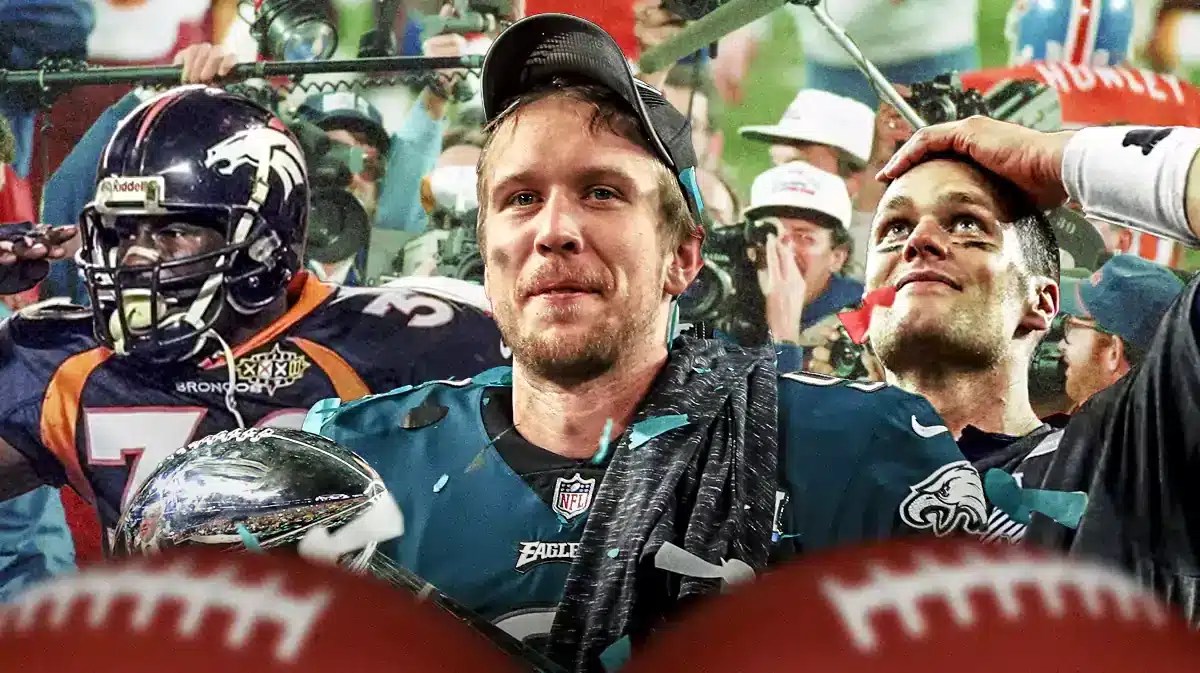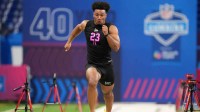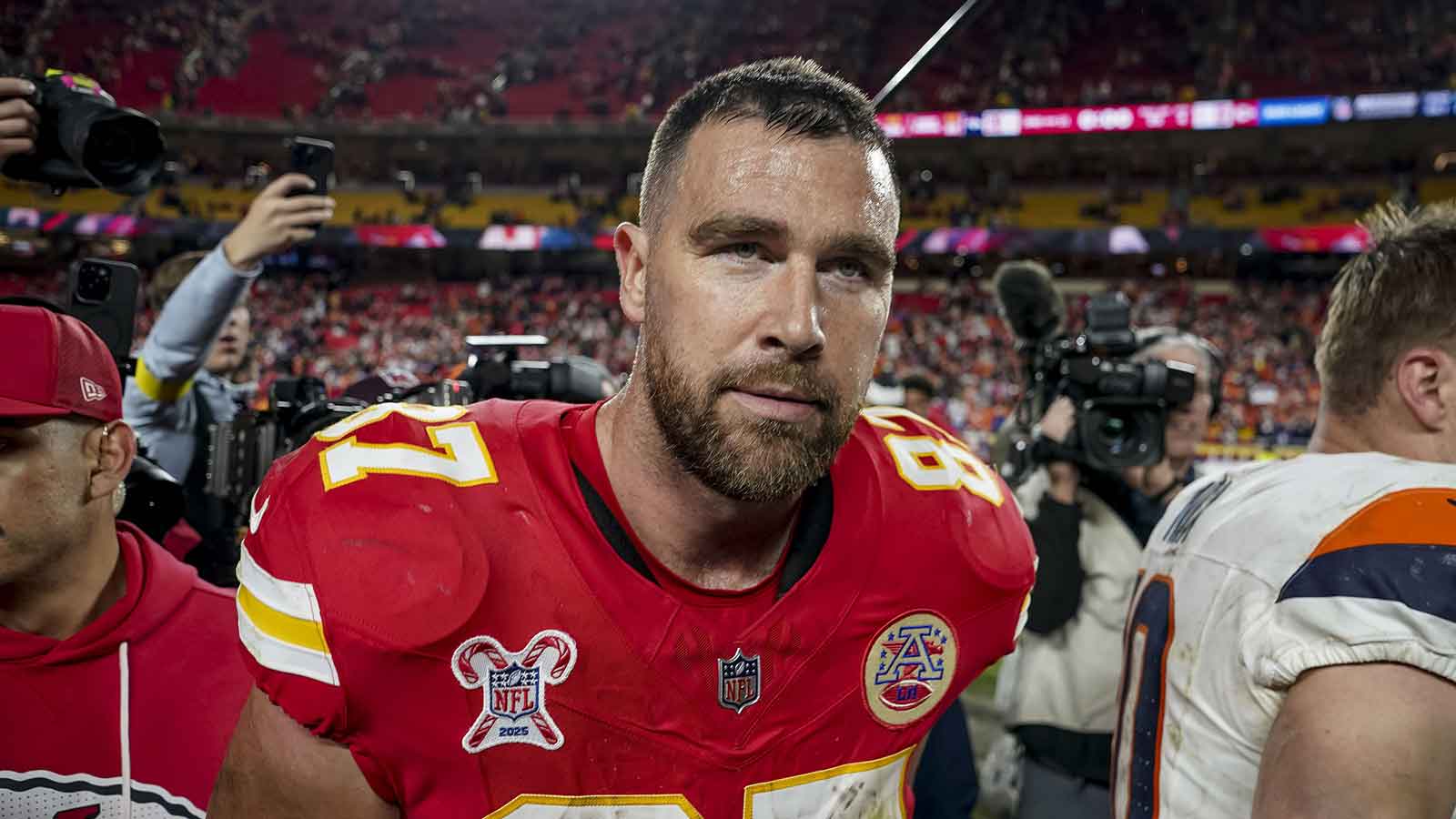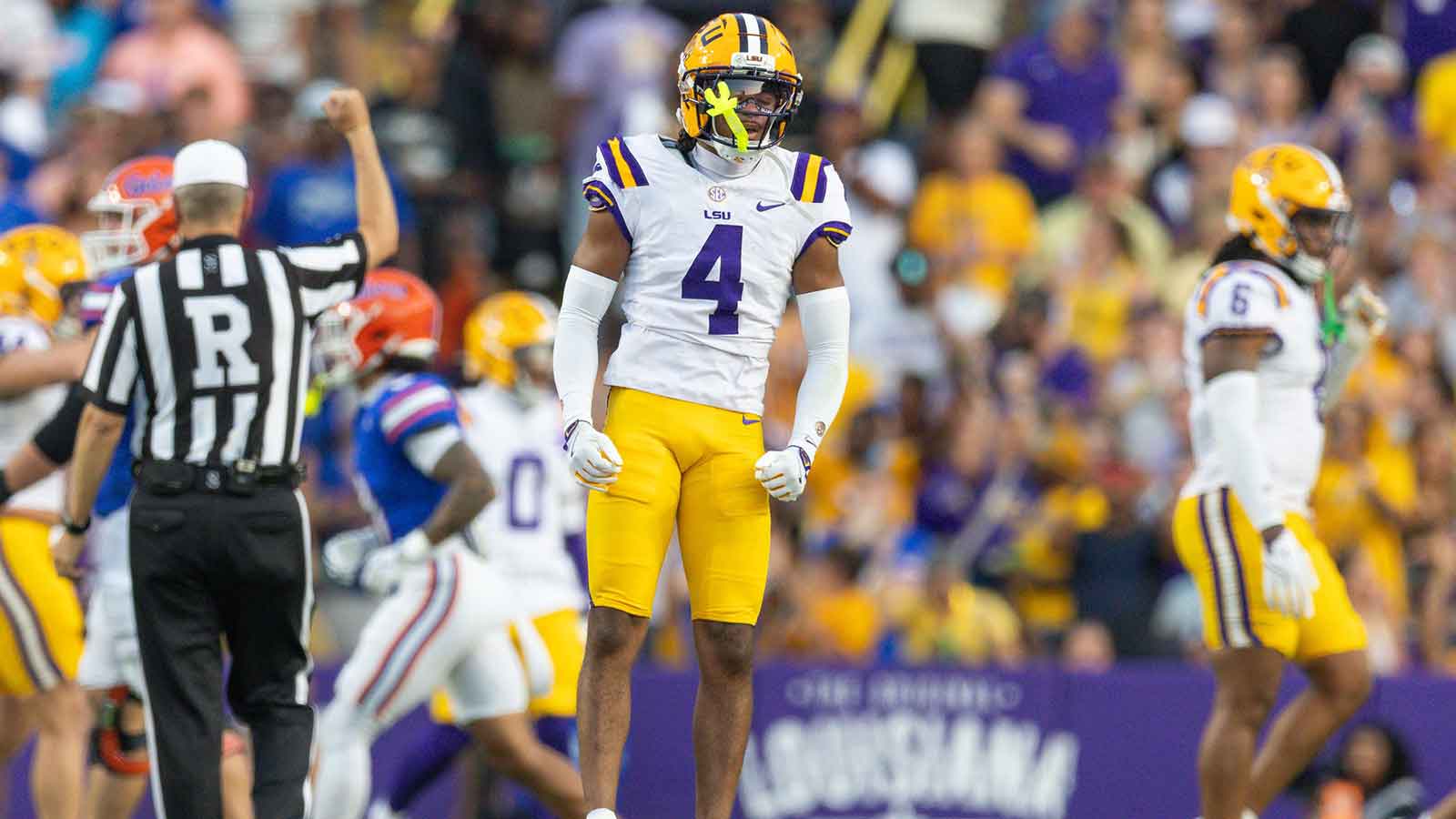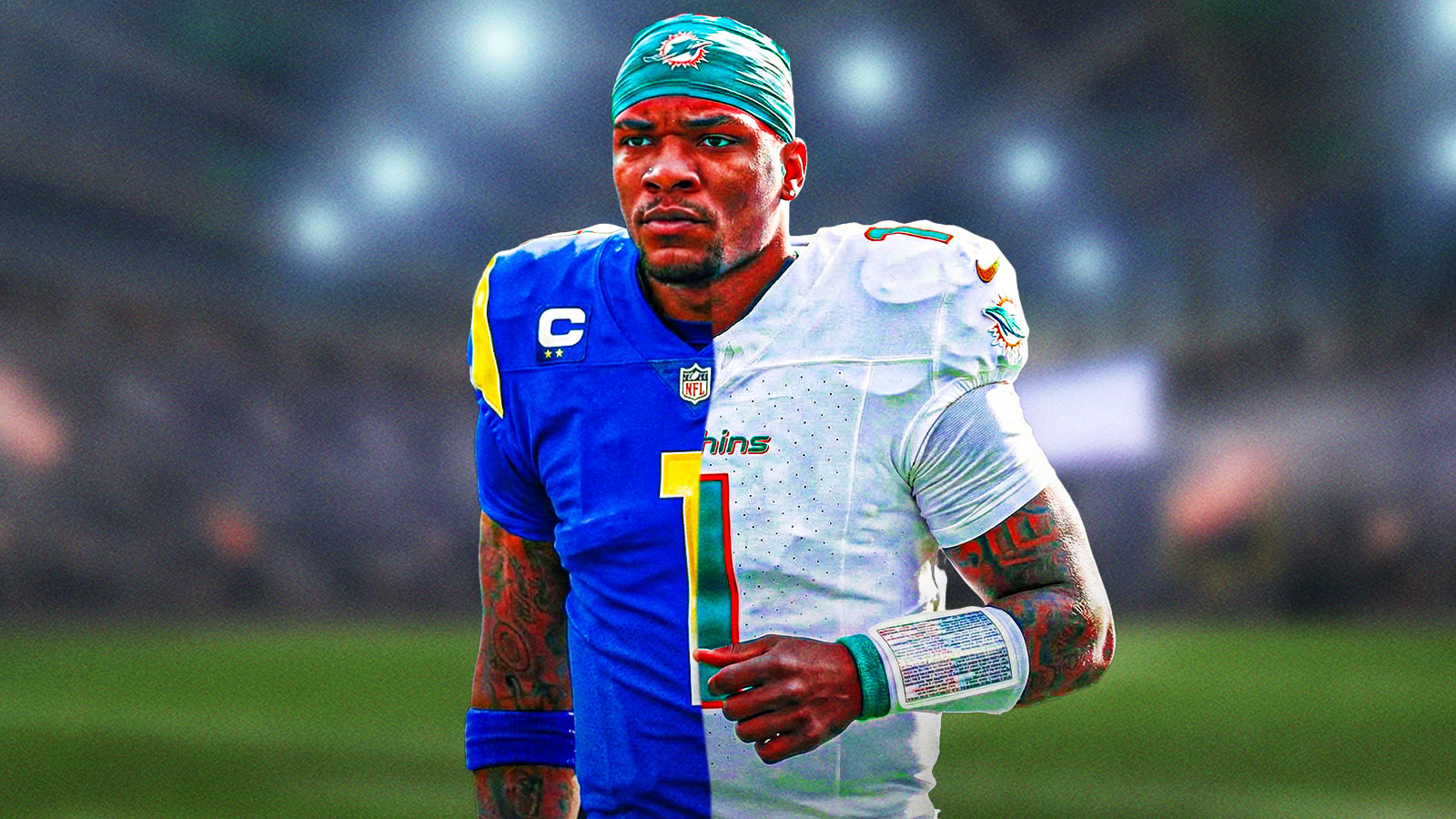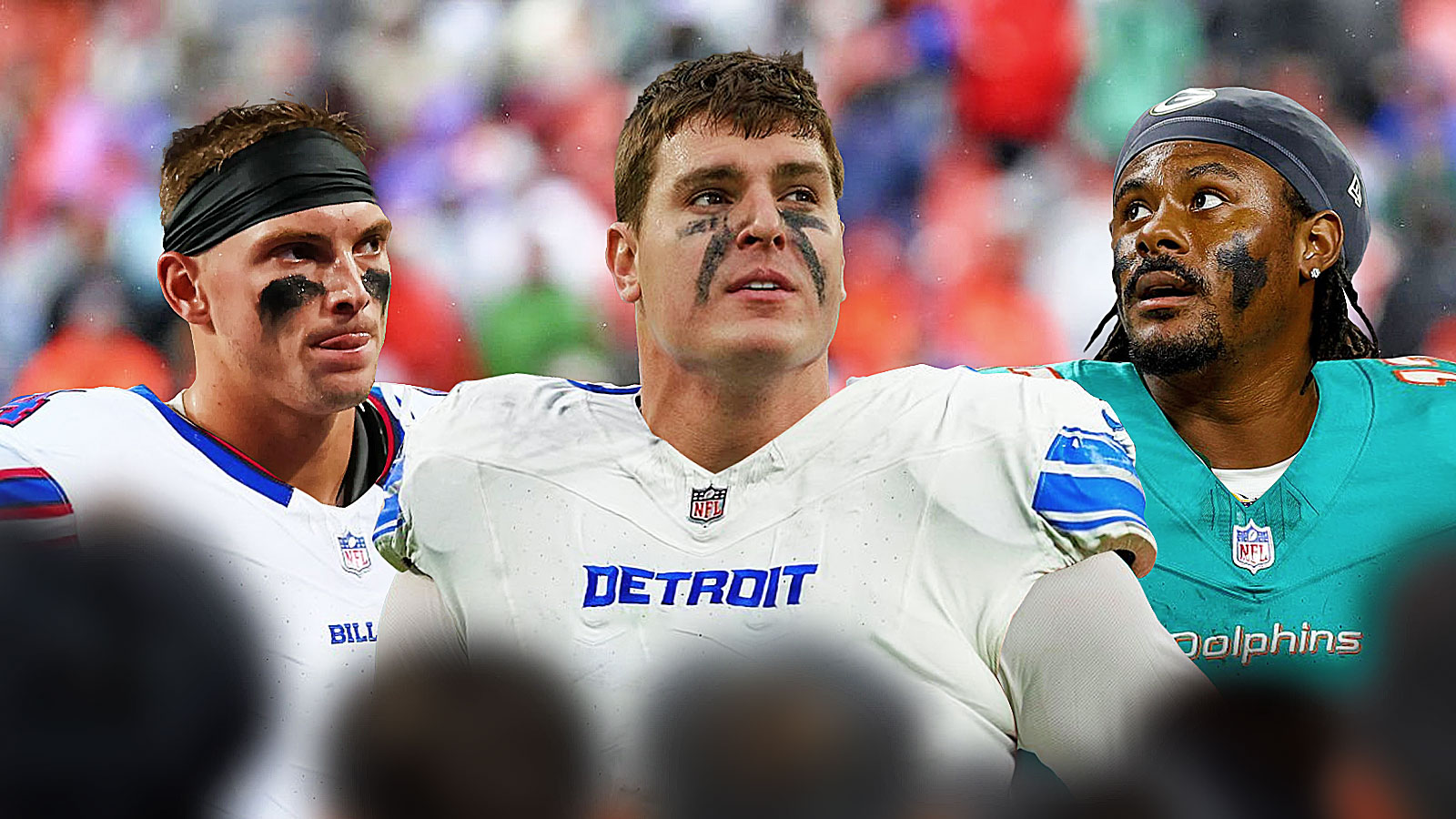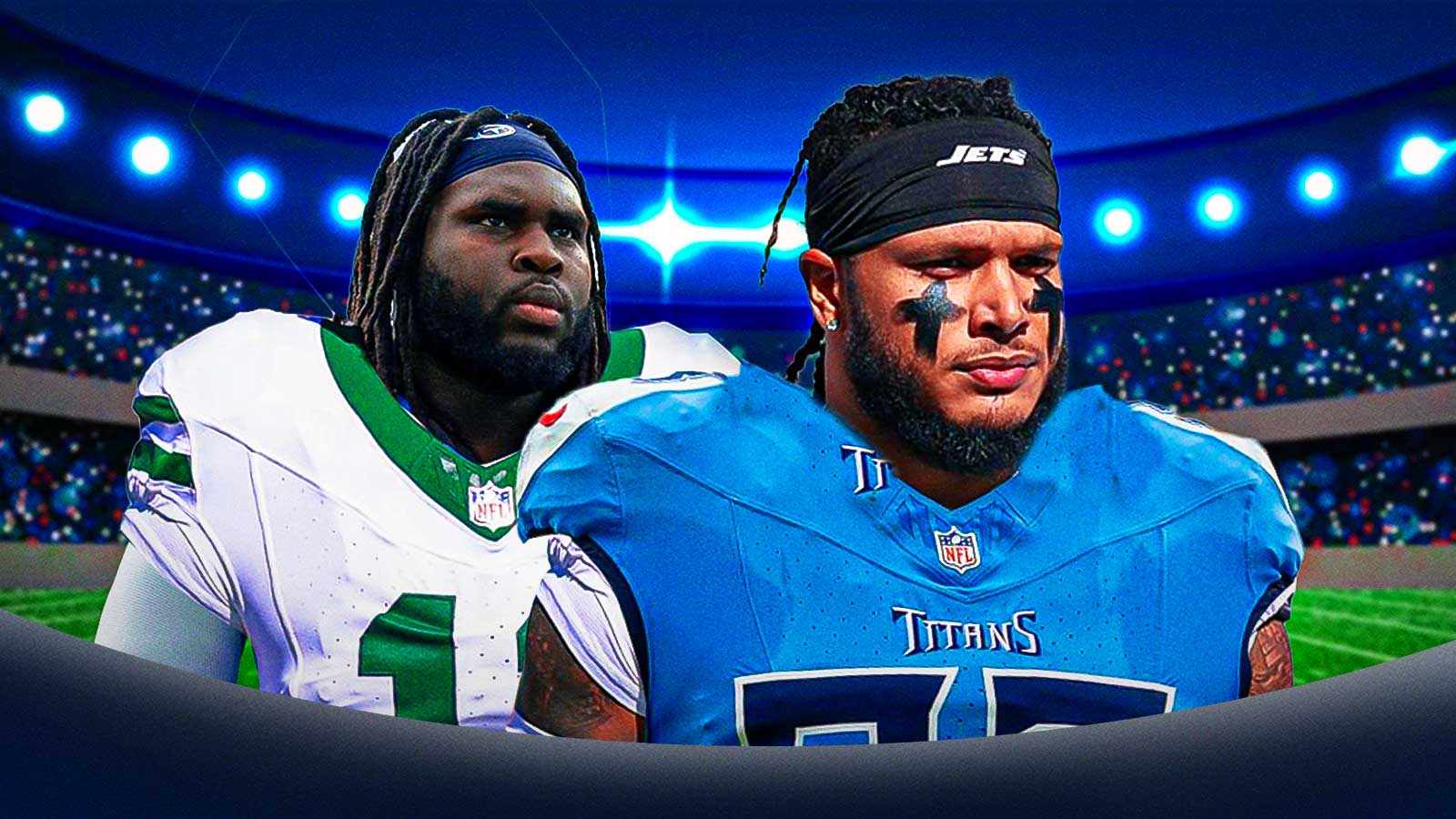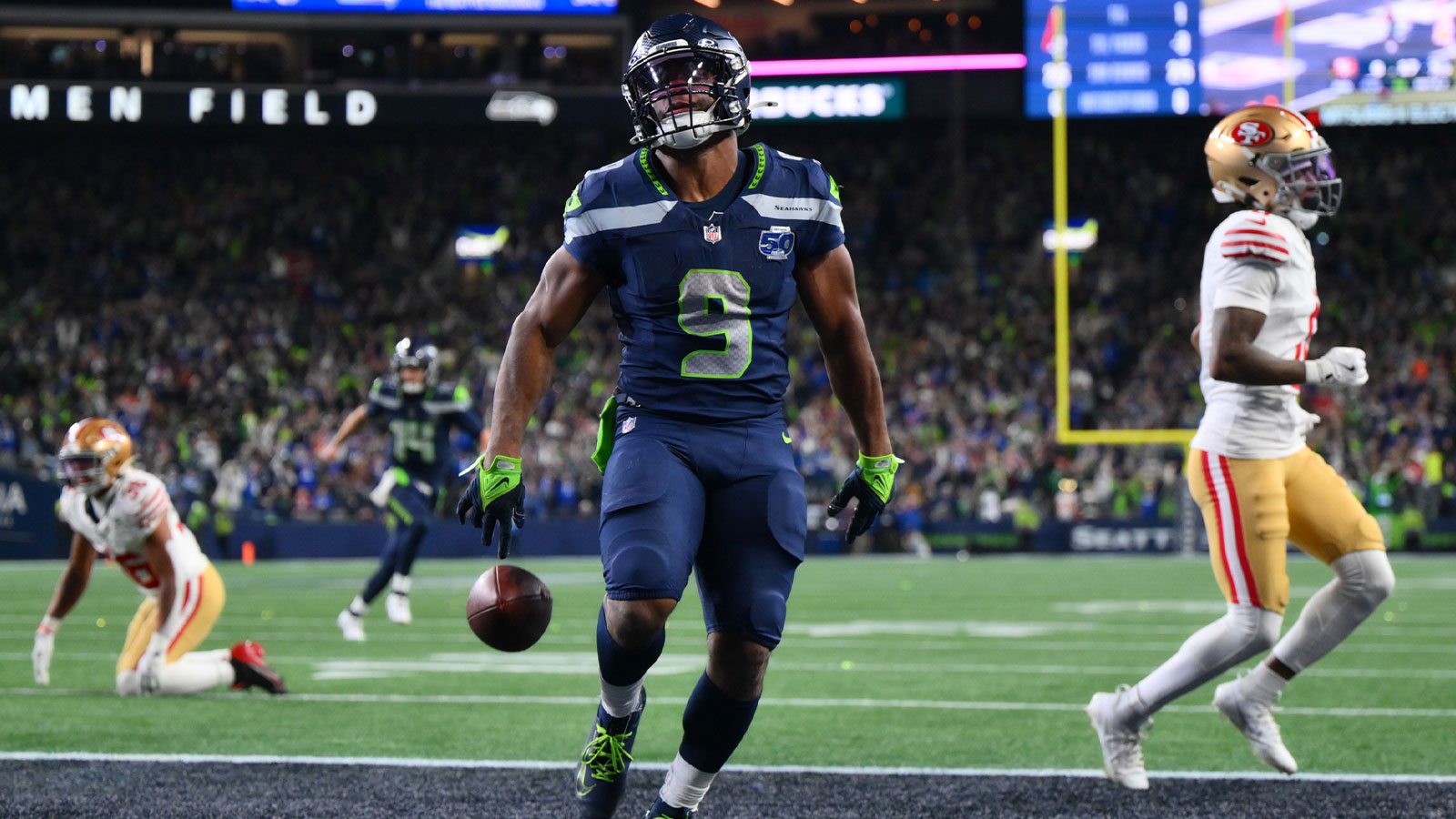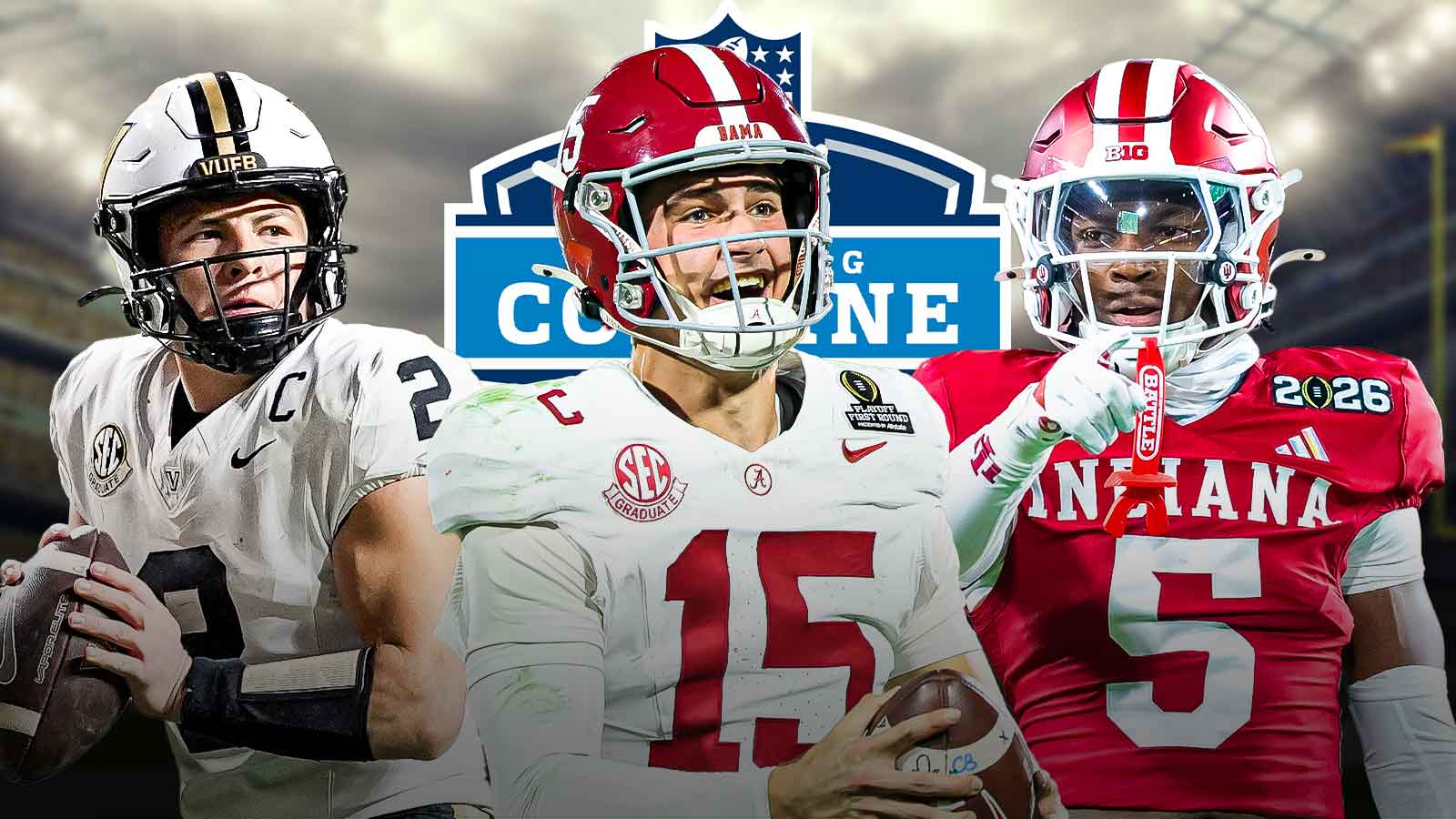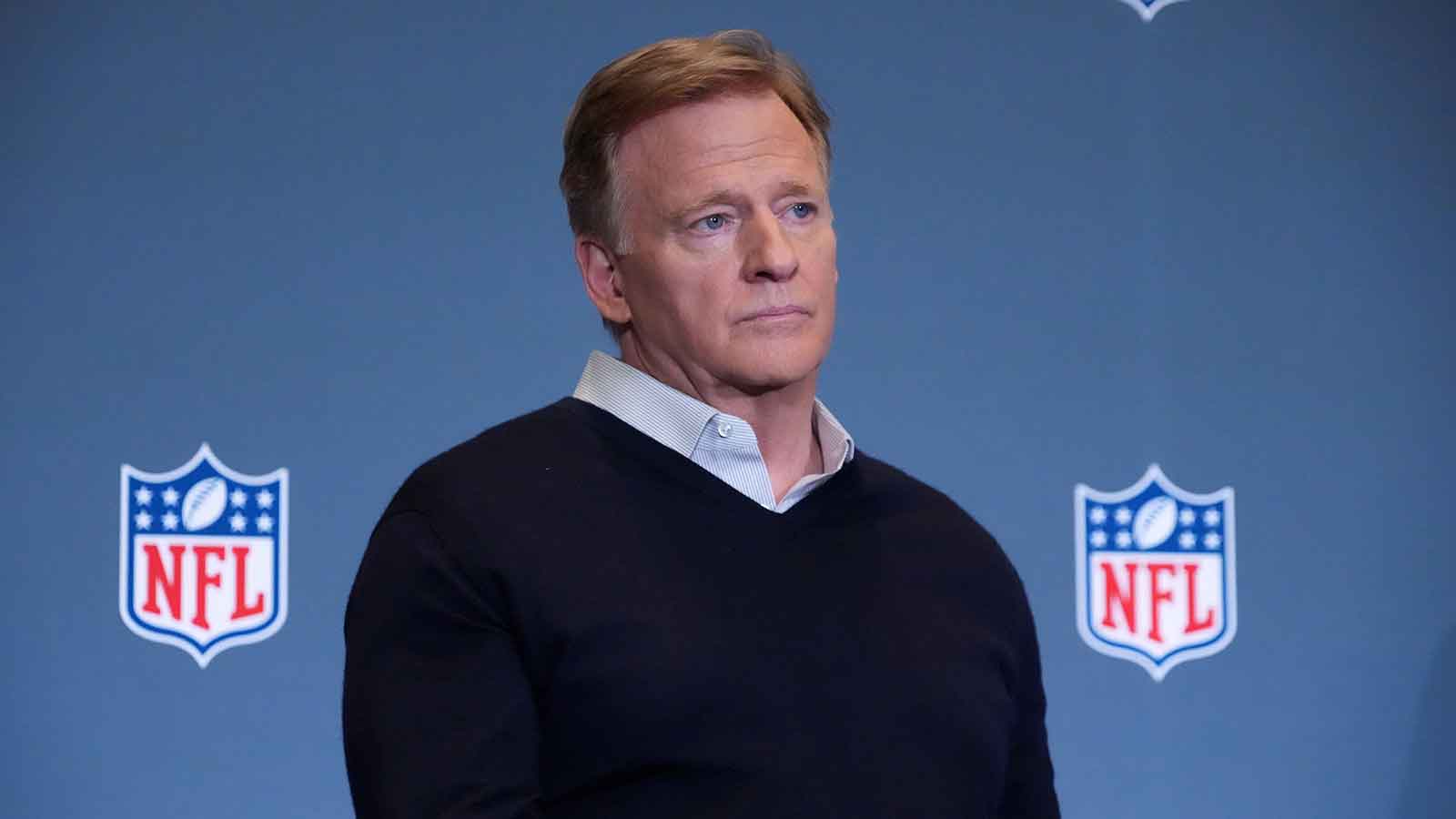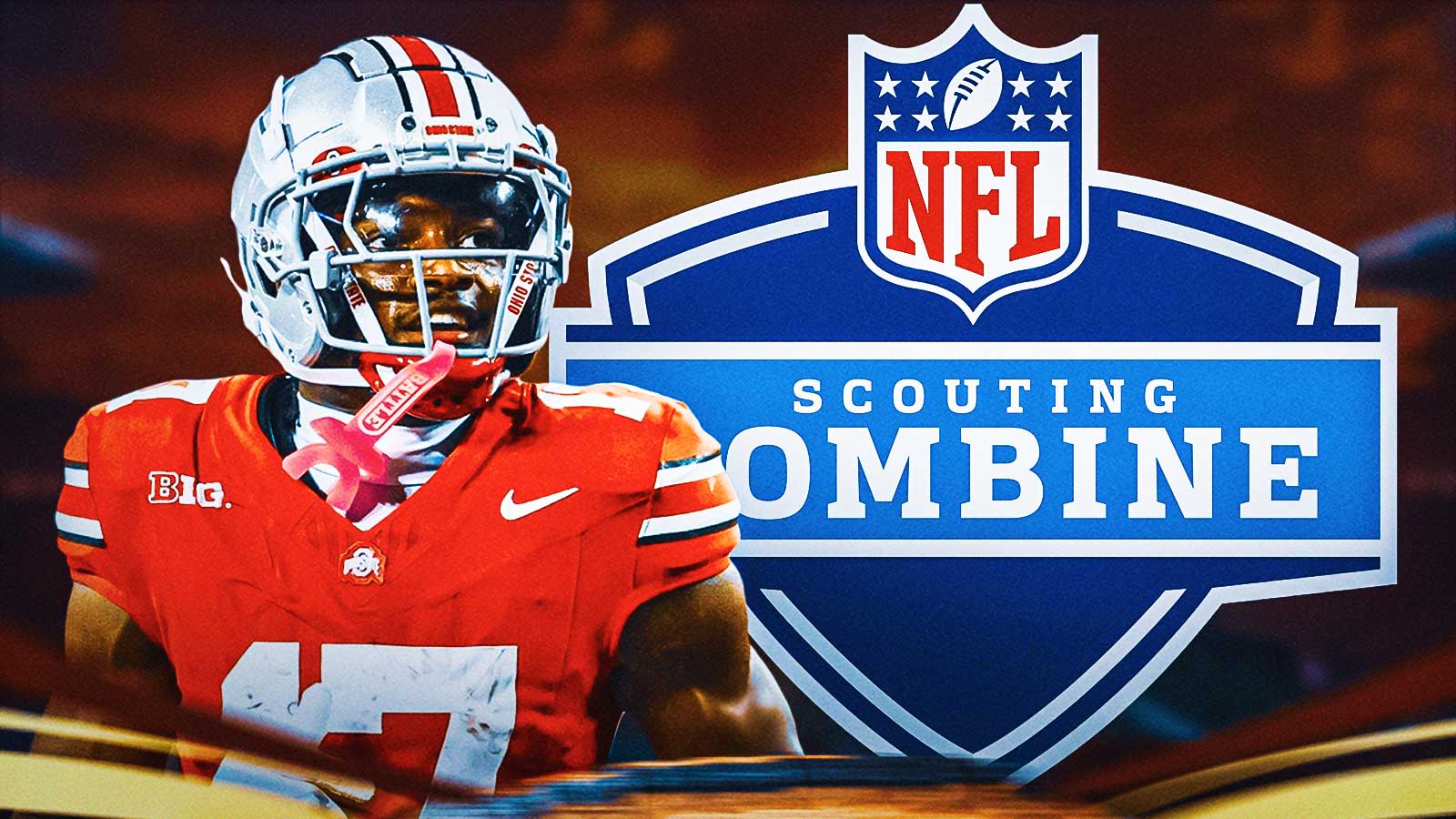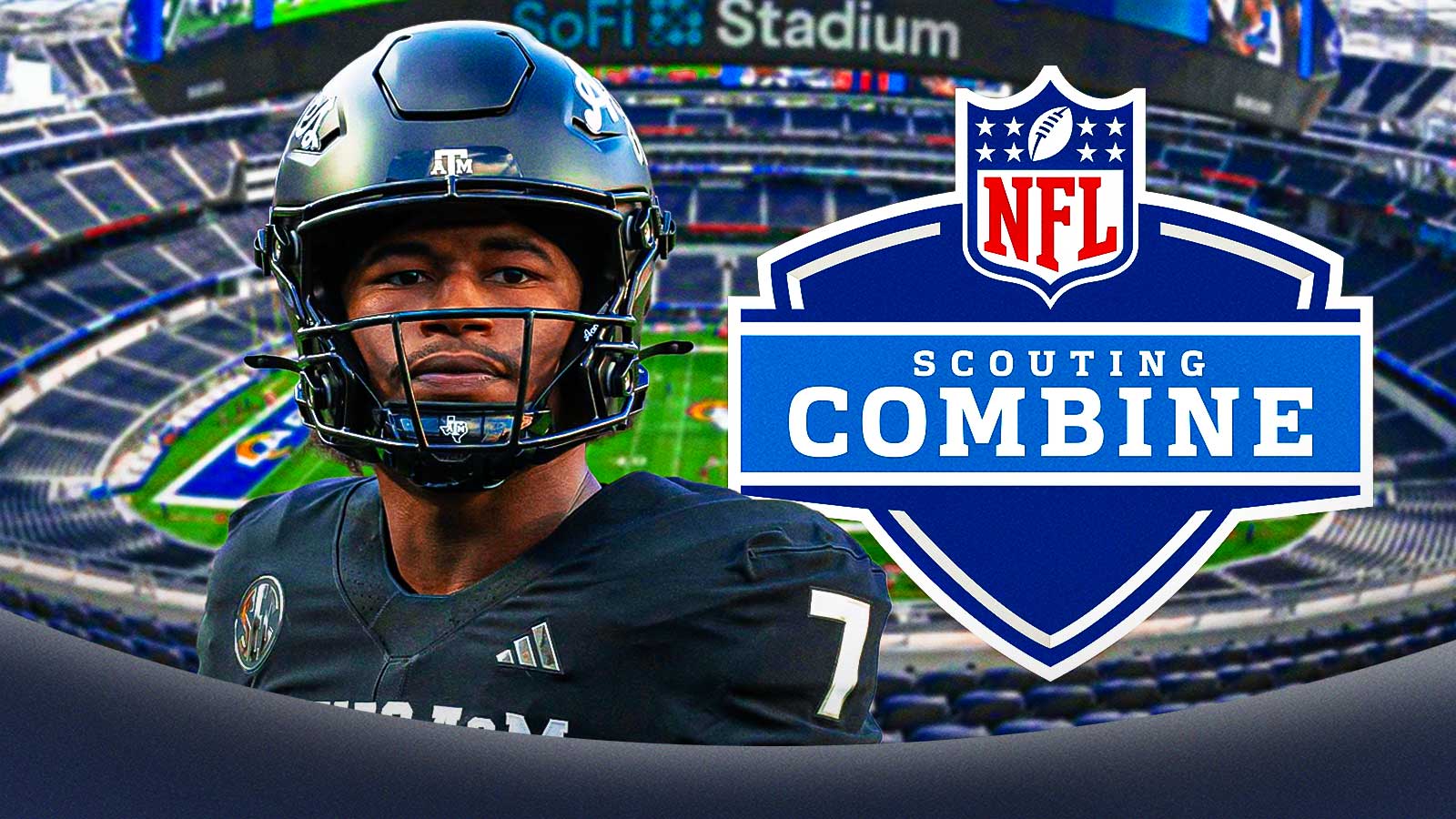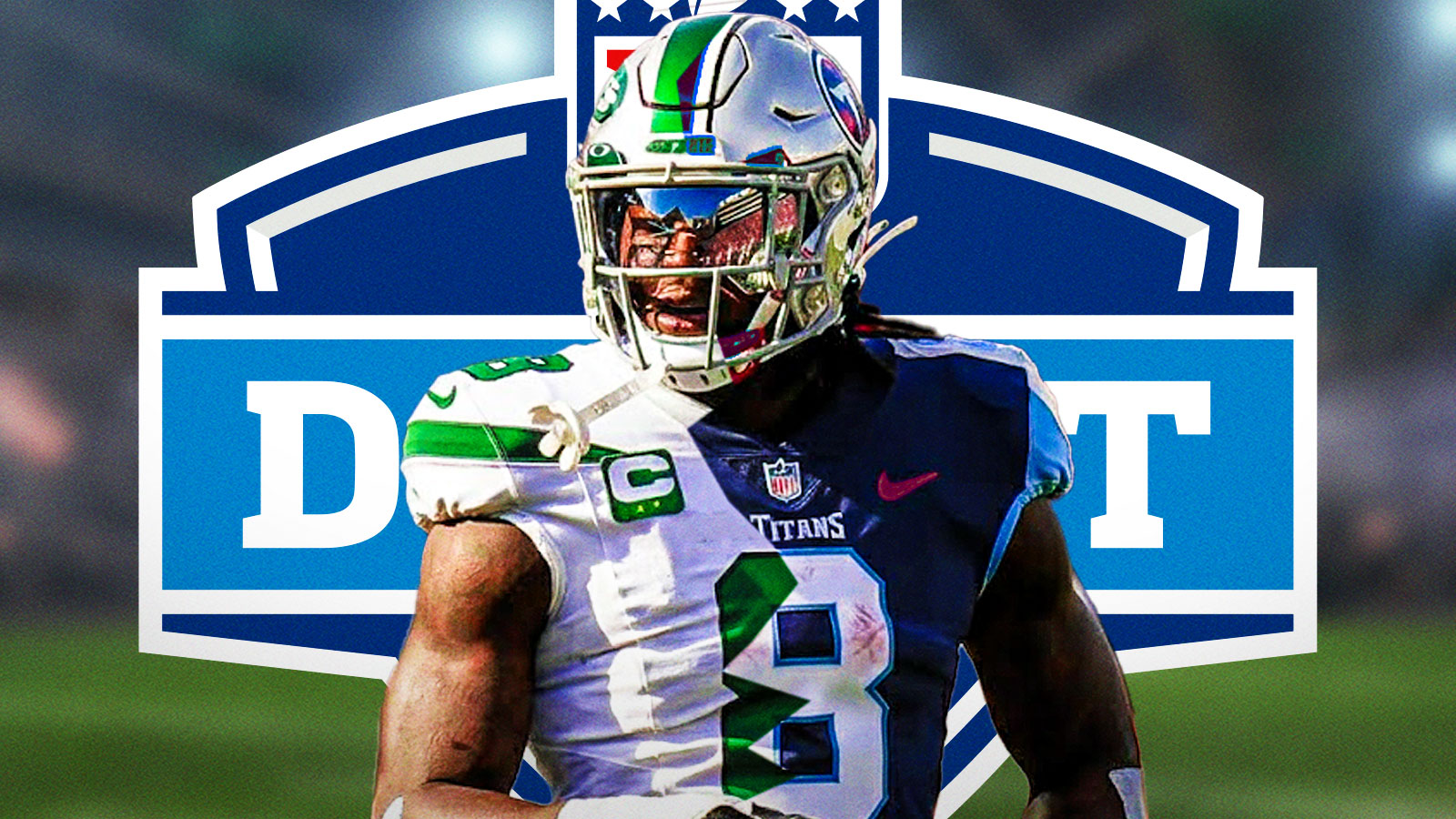Super Bowl 58 is just a mere 24 hours away, and at the conclusion of Sunday night's game, one member of the Kansas City Chiefs or the San Francisco 49ers will be named Super Bowl MVP. The 49ers are searching for their first Super Bowl victory since 1995, but on the Chiefs side, Patrick Mahomes is already a two-time Super Bowl MVP. However, with that said, Mahomes has yet to put together a truly iconic performance in the sport's biggest game. In fact, in this list of the top 11 — yeah, I know ten is a cleaner number to land on, but I went with 11 and there's nothing anybody can do about it — greatest Super Bowl MVP performances of all-time, Mahomes isn't featured.
Can Patrick Mahomes change that in Super Bowl 58? Does the NFL's script indicate that Travis Kelce will win Super Bowl MVP this year? Or will it be Christian McCaffrey, Deebo Samuel, Brock Purdy, or another 49er who takes home the hardware?
All of that remains to be seen. But for right now, you can go ahead and enjoy this list of the 11 (not 10) greatest MVP performances in the history of the game.
11. Kurt Warner (Super Bowl XXXIV)
24/45, 414 passing yards, 2 touchdowns
Super Bowl XXXIV was a strange one. Not only was it the first Super Bowl matchup in thirteen years to feature two franchises that had never won a Super Bowl, but the game itself was mostly underwhelming, leading up to arguably the most iconic final play in Super Bowl history.
The Rams got off to a 9-0 halftime lead, and extended that lead to 16-0 before the Titans finally got on the board late in the 3rd quarter. Tennessee would score 16 unanswered points to tie the game with just over two minutes remaining, but just 18 seconds later, Kurt Warner connected with Isaac Bruce for a 73-yard touchdown that gave the Rams a 23-16 lead. The 23-16 score would hold as the final margin over victory for the Rams, thanks in large part to Warner's prolific day and Mike Jones' game-winning tackle of Titans wide receiver Kevin Dyson just one yard short of the end zone on the game's final play.
For Warner, that 4th quarter 73-yard touchdown pass made up just a small portion of his 414 passing yards, and the Rams needed every one of them. The Titans defense was able to successfully bottle up Marshall Faulk, the fifth-leading rusher in the NFL during the 1999 regular season and the NFL's Offensive Player of the Year, holding him to just 17 rushing yards on 10 carries.
With the win, Kurt Warner became the first, and so far only undrafted quarterback to win a Super Bowl. He also became just the sixth player to win the regular season MVP and Super Bowl MVP in the same season — a feat that wouldn't be matched for another 23 years until Patrick Mahomes did so last year.
10. Von Miller (Super Bowl 50)
6 tackles, 2.5 sacks, 2 forced fumbles
While the first three quarters of Super Bowl XXXIV may have been underwhelming, the entirety of Super Bowl 50 turned out to be a letdown. And it was a shame, really, that in the 50th edition of the biggest sporting event in the world, where the NFL pulled out all of the stops, bringing in 39 of the 43 men who had previously won a Super Bowl MVP award for an awesome pre-game ceremony, that the game itself did not come close to living up to the hype. One player who did live up to the hype was Von Miller, the Broncos All-Pro linebacker who put forth arguably the most dominant defensive performance in Super Bowl history.
The Broncos won Super Bowl 50 by the final score of 24-10, despite accumulating just 194 yards of total offense, the lowest output by a Super Bowl winner in the game's history. It was no matter. The Broncos D stifled league MVP Cam Newton and a Carolina Panthers offense that was #1 in scoring in the NFL in 2015. In total, the Broncos forced four turnovers, including two strip sacks by Von Miller. One of those two forced fumbles resulted in the first touchdown of the game — a fumble recovery in the end zone by Malik Jackson after Miller flew in off the edge, laid a big hit on Cam Newton and ripped the ball out of his hands inside of the 5-yard-line.
The other forced fumble came late in the 4th quarter with Carolina trailing by only six points. Miller got to Newton on a 3rd and 9, slamming the door shut on the Panthers comeback bid.
9. Terry Bradshaw (Super Bowl XIII)
17/30, 318 passing yards, 4 touchdowns, 1 interception
Heading into Super Bowl XIII, both the Pittsburgh Steelers and the Dallas Cowboys had already won two Super Bowl's in the 1970s, and the winner of this matchup would solidify themselves as the undisputed team of the decade. Pittsburgh and Dallas had met in the Super Bowl just three years earlier, with the Steelers coming away with a 21-17 win. Their Super Bowl XIII rematch, another one played at the Orange Bowl in Miami, would be even better.
The 66 points scored in the Steelers 35-31 win over the Cowboys were the most in Super Bowl history… a record that would stand until 1992 when the Cowboys and the Buffalo Bills combined for 69 points, and Terry Bradshaw's 318 passing yards and 4 passing touchdowns both set Super Bowl records as well. With the win, the Steelers became the first franchise to win three Super Bowls, and the next season their dominant run would continue, as Pittsburgh would win their fourth Super Bowl in a six season span.
8. Joe Flacco (Super Bowl XLVII)
22/33, 287 passing yards, 3 touchdowns
Joe Flacco's performance in Super Bowl XLVII — better known as the Harbaugh Bowl — was the conclusion of what remains arguably the greatest postseason run in NFL history. Over the course of four games, two of which were played on the road against fantastic Broncos and Patriots teams, Flacco threw for 1,140 yards, 11 touchdowns, and not a single interception. For lack of a better descriptor, it's the closest we've ever come to seeing a quarterback have an out of body experience over the course of an entire month.
Flacco saved his best performance for last, carving up a 49ers defense that the second-best scoring defense in the league during the 2012 season. A case could've been made for Jacoby Jones to win Super Bowl MVP — 1 reception, 56 receiving yards, 1 receiving touchdown, 1 kickoff return touchdown — but without Joe Flacco turning into Joe Montana for four consecutive games, the Ravens would likely still be sitting on a single Super Bowl victory that came in 2001.
7. Nick Foles (Super Bowl LII)
28/43, 373 passing yards, 3 touchdowns, 1 interception, 1 receiving touchdown
Legend states that while he was watching Joe Flacco lead the Baltimore Ravens to a championship in February 2013, Nick Foles — then a rookie coming off his first season with the Philadelphia Eagles — looked at a friend, extended his hand out, and said “Hold my beer, because someday I'm gonna replicate this run, only it's going to be even crazier and involve me catching a touchdown pass.”
Of course, this can't be confirmed nor denied, and whether or not Nick Foles called his shot, there definitely was a little bit of deja vu going on as Foles, a backup who stepped in for MVP candidate Carson Wentz late in the season, led the Eagles to their first championship since 1960.
Tom Brady's 505 passing yards were the most in NFL Playoff history, but Nick Foles went punch for punch with the game's greatest player, even hauling in a touchdown reception late in the 1st half that gave the Eagles a ten-point halftime lead. Most impressively, Foles never blinked, even when the Patriots took a one-point lead with nine minutes to go in the 4th quarter. He responded by calmly and coolly leading the Eagles on a 14-play, 75-yard drive that ate up 7 minutes of clock. On that final drive, Foles went 8-for-10, converted on both a 3rd AND a 4th down, and hit Zach Ertz for the go-ahead touchdown.
6. Doug Williams (Super Bowl XXII)
18/29, 340 passing yards, 4 touchdowns, 1 interception
Just six minutes into Super Bowl XXII, Washington was trailing 10-0 to the two-time defending AFC Champions, the Denver Broncos. At that point in time, a 10-point deficit in the Super Bowl might as well be considered a death sentence. No team in Super Bowl history had ever trailed by double-digits and came back to win the game. But it turns out, Super Bowl XXII was a game of many firsts.
Most notably, Super Bowl XXII marked the first time that an African American quarterback started in a league championship game, and that extends multiple decades before the Super Bowl was in existence. That quarterback, Doug Williams, began the season as Washington's back-up quarterback, and in the regular season he started just two games, going 0-2 in those two contests. Still, Williams managed to lead Washington to two postseason wins, clinching a berth in the Super Bowl in the process.
The night before the game, Williams underwent an emergency 6-hour root canal surgery, and to make matters even worse, he went down with an ugly-looking non-contact leg injury in the 1st quarter. Naturally, Williams responded by coming back into the game and throwing four touchdown passes in the 2nd quarter alone, turning a game that looked like it was going to be dominated by the Broncos into an absolute blowout in Washington's favor. By halftime, Williams had led his team to a 35-10 lead and all but clinched a well-deserved and completely unexpected Super Bowl MVP.
5. Terrell Davis (Super Bowl XXXII)
30 carries, 157 rushing yards, 3 touchdowns, 2 receptions, 8 receiving yards
Super Bowl XXXII is best known as the game John Elway finally got his Super Bowl ring — or for fans of This Is Us, the night that Jack Pearson died — but in reality, it was Terrell Davis, the second-leading rusher in the NFL in 1997, who did nearly all of the heavy lifting for the Denver Broncos.
The Broncos entered Super Bowl XXXII as 11-point underdogs to the Green Bay Packers. The Packers had won the Super Bowl the season prior and most analysts figured that they would roll over the Broncos to bring the Lombardi Trophy back to Green Bay for the second straight year. Not only had the Packers defeat the Broncos by the final score of 41-6 just a season earlier, but the NFC had won 13-consecutive Super Bowls over the AFC, leading most to believe that history would once again repeat itself.
Despite dealing with a severe migraine that kept him out of most of the 2nd quarter, Terrell Davis was fed the ball relentlessly throughout the game and it resulted in a 31-24 win that got the AFC off the schneid. The Broncos ran 61 offensive plays, and Terrell Davis finished with 32 touches. His three rushing touchdowns set a Super Bowl record, and his 581 rushing yards in the Broncos four Playoff wins are second-most in NFL history.
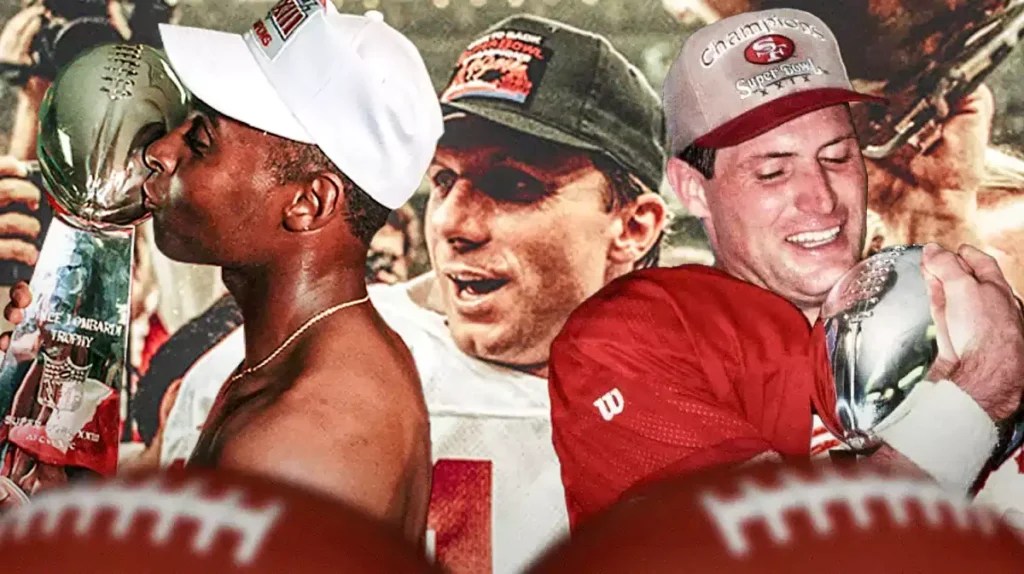
4. Steve Young (Super Bowl XXIX)
24/36, 325 passing yards, 6 touchdowns, 5 carries, 49 rushing yards
3. Joe Montana (Super Bowl XXIV)
22/29, 297 passing yards, 5 touchdowns
2. Jerry Rice (Super Bowl XXIII)
11 receptions, 215 receiving yards, 1 touchdown
A trio of 49ers Super Bowl MVP performances come in at numbers 2-4 on the list. As far as the order goes, it's dealer's choice. Steve Young, Joe Montana, and Jerry Rice all put up eye-popping numbers, but I gave the slight edge to Rice's performance since the 49ers needed every one of those 11 catches and all 211 yards.
In Super Bowl's XXIV and XXIX, the Niners won by a combined scored of 104-36 over their clearly overmatched opponents, the Denver Broncos and San Diego Chargers. But in Super Bowl XXIII against NFL MVP Boomer Esiason and the Cincinnati Bengals, the 49ers found themselves trailing 13-6 late in the 3rd quarter. This is where Jerry Rice, the NFL's greatest wide receiver, completely took over. In the final sixteen minutes of the game against Cincinnati, Rice was absolutely unstoppable, catching 6 balls for 140 yards and a touchdown. The only way it could've been better were if Joe Montana connected with Rice instead of John Taylor for the go-ahead touchdown. His 215 receiving yards for the game is a Super Bowl record that still stands 35 years later. It goes down as arguably the greatest performance in Rice's remarkable two-decade long career.
And hey, speaking of remarkable two-decade long careers…
1. Tom Brady (Super Bowl LI)
43/62, 466 passing yards, 2 touchdowns, 1 interception
Isn't it fitting that the only player ahead of Jerry Rice on a list that evaluates the greatness of a given player would be Tom Brady? In his 23-year NFL career, Brady won a record seven Super Bowls and five Super Bowl MVP's, so there were plenty of Brady games to choose from when putting together this list. TB's performances against Carolina and Seattle warranted consideration for the list, but no game did more for an NFL player's legacy than Super Bowl LI did for Tom Brady's.
Trailing 28-3 in the 3rd quarter, Tom Brady and the New England Patriots engineered an unbelievable comeback that is arguably the defining moment in Super Bowl history. We can argue that point for the rest of time, because lord knows there are plenty of incredible moments to choose from, but on February 5th, 2017, Tom Brady officially became the greatest player in NFL history and in my mind, that trumps just about everything else. In fact, I'd even go as far as suggesting that Super Bowl LI is in the running for the most iconic sporting event of the 21st century.
It wasn't a perfect performance by any means — Brady's 2nd quarter pick six put the Patriots in a 21-0 hole that appeared insurmountable — but in the 2nd half, when the Patriots truly needed him to be as close to perfect as possible, Brady answered the call.
It may have been Julian Edelman who made the biggest play of the game, and James White — who had a stealthy Super Bowl MVP case — who scampered into the end zone for the game-winning touchdown in overtime. And of course, the game itself will always be remembered as much for the Falcons collapse as it was the Patriots comeback. But I'm confident when I say that with any other quarterback who has ever lived playing in this game in place of Brady, the New England Patriots don't win Super Bowl LI.
And that right there is the truest meaning of Most Valuable Player that I can conceive of.

